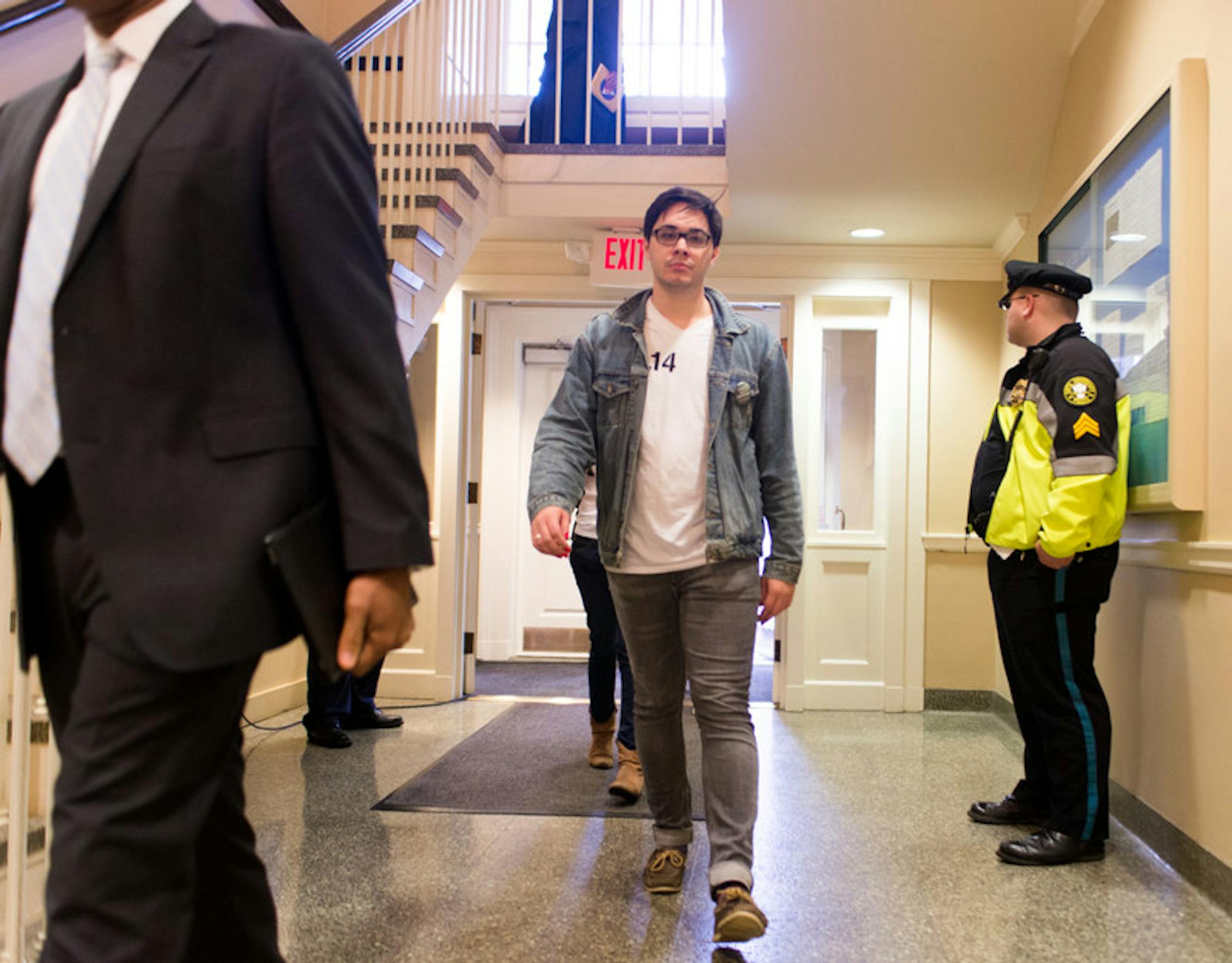Updated: Tufts University plans to meet with the Department of Education's Office for Civil Rights (OCR) within the next week to discuss its sexual assault policy and compliance with Title IX.
Following a four-year investigation into a Title IX complaint filed by a student in 2010, Tufts had signed a voluntary agreement on April 17 with OCR in which the university promised to make a slew of changes to its sexual assault policy. But the university "revoked" its signature on the agreement on April 26 after, it says, it was notified by OCR that its current policies don't comply with Title IX, the federal law that bans gender discrimination on campus.
"The central office would not meet with us, would not talk to us and would not give us any details about what they found," University President Anthony Monaco said. "I could not, hand on heart, keep us within that agreement."
Yet the Department of Education announcement was "a long time in the work," according to junior John Kelly, who spoke with Assistant Secretary for Civil Rights at the Department of Education Catherine Lhamon while he was in Washington, D.C., yesterday. There for the White House unveil of new guidelines for handling sexual assault on college campuses, Kelly said Tufts administrators' reactions have been "shameful" and "prideful."
"You can't tell the government, 'This is mean of you, make it nicer and we'll respond,'" Kelly said. "It's time you own up to it. It's ridiculous that the administration thinks it can bully the federal government."
When the OCR sits down with Tufts, Monaco said he is willing to sign a new agreement -- even one that acknowledges Tufts has violated Title IX -- as long as the OCR explains how the university has broken the law and "is very clear about what we have to improve."
The OCR letter of findings -- sent to Monaco on April 28 -- explains the components of Tufts' current sexual assault policy and procedures that, the Department of Education said, violate Title IX. Among them are the length Tufts takes to respond to each report, the lack of clarity in what academic and housing adjustments survivors can request, as well as to whom students can speak about the investigation and procedures.
Although Tufts will continue to implement recommendations from the agreement, including developing additional resources for survivors and increasing staff and faculty training, there is a disconnect between what the university and OCR interpreted these revisions represent.
"The agreement, negotiated between Tufts and the regional OCR, concluded that we had made a lot of changes, which put us in a position where we were compliant with Title IX," Monaco said. "We can't have this dichotomy of regional and central offices telling us different things."
As the White House yesterday released guidelines for how campuses should handle sexual assault, the influence of Washington politics on Tufts' investigation resonated with some. Terry W. Hartle, senior vice president at the American Council on Education, spoke to The Boston Globe about the interaction of universities and the Obama administration.
"They are very anxious to be seen as taking a very tough and aggressive stance," he said in an April 29 Boston Globe article. "I think, frankly, they were probably looking for somebody to make an example of, and Tufts just happened to be in the wrong place at the wrong time."
Harvard University and Columbia University are also under investigation by the OCR for Title IX-related matters. These suits come amid a number of highly publicized sexual assaults at colleges nationwide that led to President Obama's creation of a task force to address campus rape.
The OCR began investigating Tufts after a female student filed a Title IX lawsuit in September 2010 about problems she faced with how the school handled her sexual assault report. Concluding this investigation with a "voluntary resolution agreement" -- what Tufts signed on April 17 -- is par for the course. The University of Montana and the State University of New York System also went through this process after issues arose with their Title IX compliance.
But Tufts is the first school to revoke its agreement, Department of Education press secretary Dorie Nolt told the Daily in an email.
Although the university acknowledges it was not compliant with Title IX in 2010, Mary Jeka, senior vice president for university relations and general counsel, said Tufts has followed this federal law since 2011. If she had known the OCR believed Tufts has violated Title IX, Jeka said she would not have signed the agreement.
While Tufts administrators insist the alleged violation is a byproduct of OCR's regional and central offices disagreeing, the Department of Education press secretary told the Daily that Tufts has been aware of the circumstances since the university signed the agreement on April 17.
"If Tufts feels there's been a miscommunication, it's just how Tufts has decided to save face," Kelly said.
Since the 2010 case was filed, Tufts has added a Title IX coordinator, trained staff and faculty about the issue and altered several components of its sexual assault policy and procedure.
"If we're not in compliance, I'm just wondering who is," Office of Equal Opportunity Director Jill Zellmer said.
Office for Civil Rights, Tufts at odds on Title IX compliance






